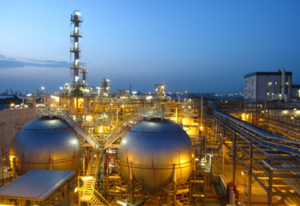Asahi Kasei to produce solution-polymerized SBR derived from plastic waste
Düsseldorf, Germany – Asahi Kasei concluded an agreement with Shell Eastern Petroleum Ltd. on November 23, 2021, regarding the supply of butadiene derived from plastic waste and biomass. The signing ceremony was held at the “Creating the Plastic Circular Economy in Singapore: Journey from Vision to Reality” event on Bukom Island, Singapore. Asahi Kasei plans to begin producing and marketing sustainable solution-polymerized styrene-butadiene rubber (S-SBR) using the sustainable butadiene at its plant in Singapore by the end of fiscal 2021 in March 2022.
S-SBR is a type of synthetic rubber used mainly for high-performance fuel-efficient tires (eco-friendly tires). Demand for eco-friendly tires is growing worldwide with stricter environmental regulations and heightened environmental awareness. By enhancing fuel-efficiency performance while maintaining safety performance, S-SBR is recognized as an optimum material for eco-friendly tires. To accelerate efforts for decarbonization to achieve carbon neutrality by 2050, the automotive industry is transitioning to electric vehicles while the tire industry is further improving the fuel-efficiency and wear resistance of tires. Against this background, there is rising demand for greater sustainability of S-SBR as a material for eco-friendly tires.
Asahi Kasei continues to focus on technological developments for high-performance S-SBR products that enable further improvements to fuel efficiency and wear resistance, in order to meet requirements for increased driving range and mass production of electric vehicles. Additionally, Asahi Kasei has sought to transition to sustainable feedstock in order to reduce CO2 emissions throughout its supply chain. Shell will produce sustainable butadiene by mass balance method in two ways at Bukom, Singapore. The first is a method of converting plastic waste into pyrolysis oil and feeding it to the naphtha cracker, and the other is using bio-feedstock as a naphtha cracker feed.
Asahi Kasei will be the world’s first company to use butadiene derived from plastic waste, and the first Japanese company to use butadiene derived from biomass, for S-SBR production (according to internal research). Throughout the life cycle of tires from materials, production, use (driving), disposal, and recycling, the proportion of CO2 emissions in the case of internal combustion engine vehicles is highest in the use phase. In the case of electric vehicles, in contrast, use-phase emissions are reduced by a wide margin, making emissions from materials such as S-SBR relatively higher. The use of sustainable S-SBR therefore enables a significant reduction in CO2 emissions over the life cycle of tires. Asahi Kasei thus expects to make a significant contribution to reduced CO2 emissions throughout the supply chain through the production of S-SBR using sustainable butadiene.

